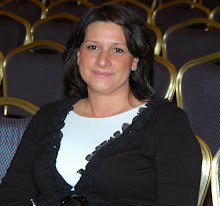 …” So, when we got to the Institute he summoned together people in high positions. An exchange of views took place between them about how legally protect those who recovered from their conditions so they would still be able to work.
…” So, when we got to the Institute he summoned together people in high positions. An exchange of views took place between them about how legally protect those who recovered from their conditions so they would still be able to work.…This meeting went on from nine in the morning till the afternoon… I had run to fetch Marika and then we went in. I stopped in the doorway and looked at him: he looked very unwell. ‘Well I have sorted that out’ he said.
...The two of us sat there and drunk our coffees. Suddenly he looked at me, stood up from his chair and came over to me, his skin had a strange colour, and he said: ‘Oh Ili, I am going to die.’ He sank into the armchair, falling forward. I put his medicine under his tongue but in vain. It was too late.” Memoirs of the beginning of Conductive Pedagogy and András Petö by Dr. Judit Forrai,Page 96
'Could the marriage of science and spirituality answer the deepest mysteries of our past, while solving the problems that threaten our future? A growing body of evidence suggests that the answer to this question is an empowering “YES!”'
Gregg Braden
From the book titled: Memoirs of the beginning of Conductive Pedagogy and András Petö by Dr. Judit Forrai
page 72-74
Uj Aranyhid, Budapest and the Foundation for Conductive Education, Birmingham 1999
“…As I said he was good at everything. He knew homeopathy, he knew medicinal herbs. During the war he was mostly buried in libraries, studying mysticism. He studied Jewish, Islamic and Christian mysticism, as well as Hindu.
… He kept himself busy with science and mysticism of Tibet but not with any traditional European methods.”
Interview with Dr. Miklos Kun
“…Petö was a student of Rudolf Steiner’s work. He had studied it for long time. He knew his philosophy, his pedagogy and his curative education. Petö carried Judaism and Christianity within himself but in his manifestations he showed himself to be most closely related to Buddhism. He would suggest books to read on this topic.”
Tamas Vekerdi: Almok es lidercek. Budapest 1992. T-Twin
“…I believe that Petö didn’t believe in his own strengths. He believed that there were sometimes forces at his disposal if he had to heal a particular patient in whose destiny it was written that he would be healed. I also felt that such forces were available to him. But he didn’t believe that the force was his own, rather that it was some superior cosmic force….”
Interview with Ilona Szekely
Reference
Forrai, J. (1999) Memoirs of the beginnings of Conductive Education and András Pető, Budapest and Birmingham, Uj Aranhíd and Foundation for Conductive Education
















No comments:
Post a Comment